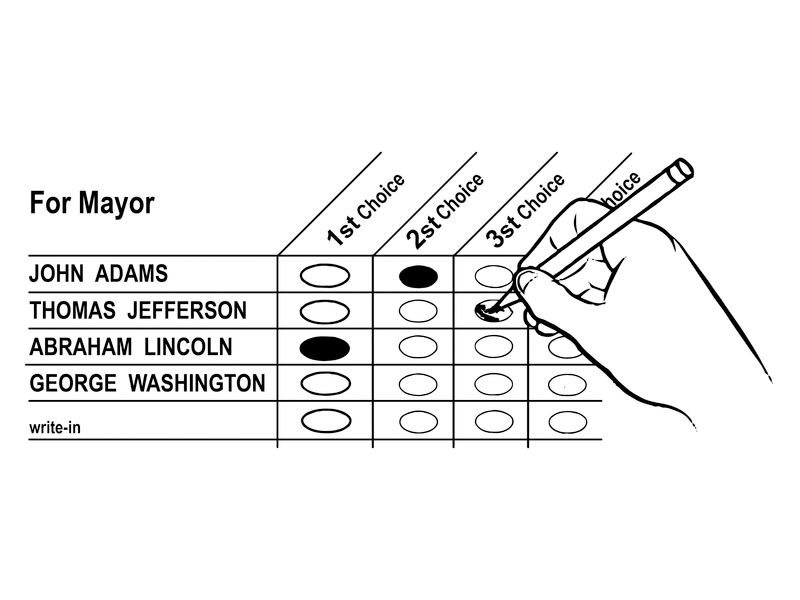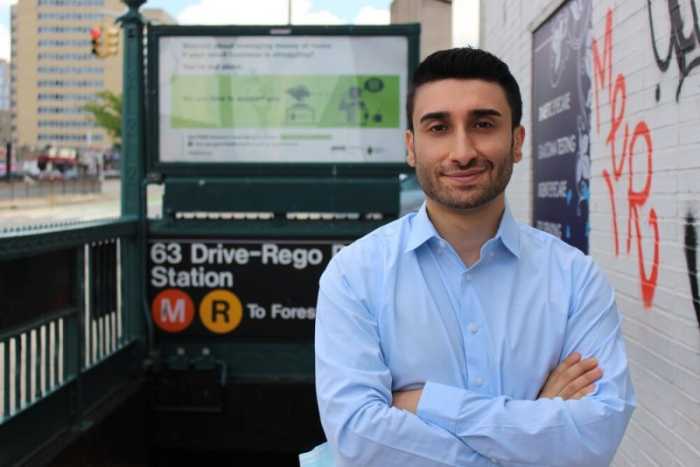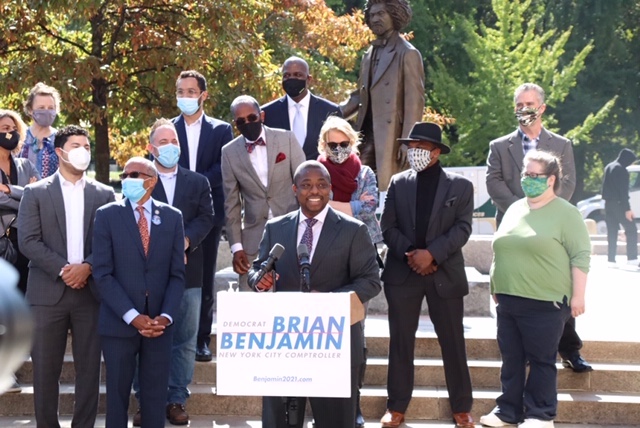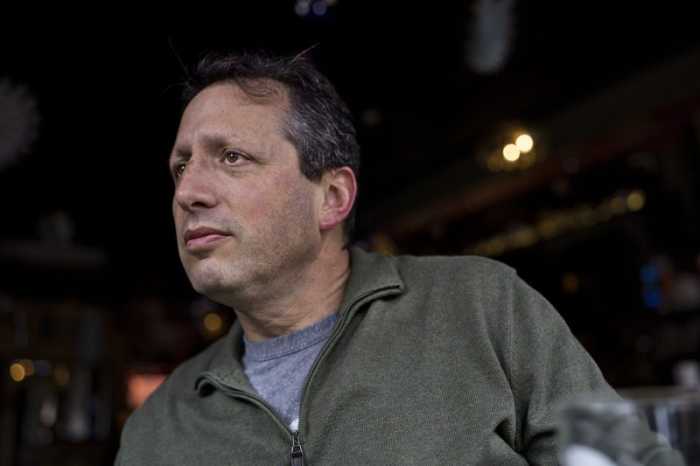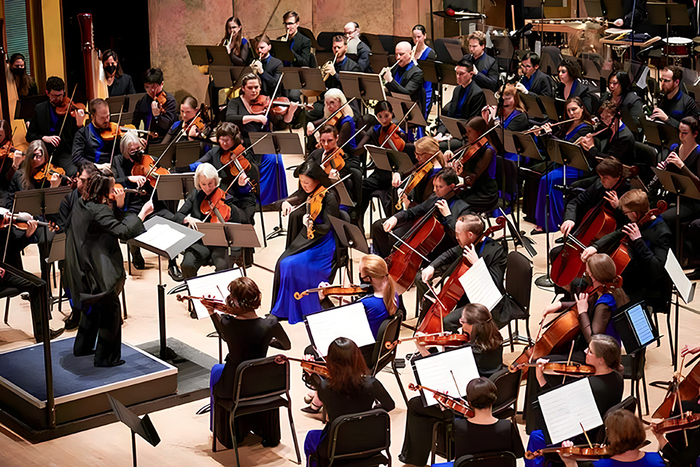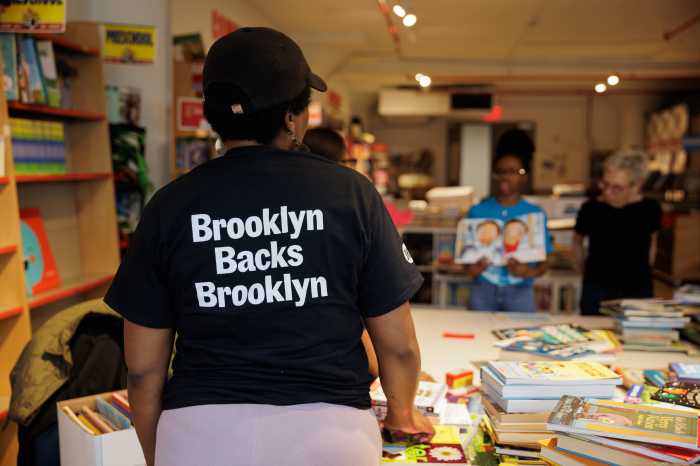The guinea pigs have spoken and, for the most part, they want to be experimented on.
In the midst of a growing battle over whether or not to implement ranked choice voting next year in the city’s elections, candidates in the first election to use the new voting system are saying that the city should continue as planned with the new system.
Despite efforts in the city council and outcries from other candidates to defer the implementation of ranked choice voting next year, the majority of candidates in the February special election to replace former City Councilmember Rory Lancman in District 24 (Kew Gardens Hills, Pomonok, Electchester, Fresh Meadows, Hillcrest, Jamaica Estates, Briarwood, Parkway Village, Jamaica Hills, Jamaica) are publicly saying that they believe the city should not delay using the new method of voting.
“We knew this was coming. We never know when someone is going to resign or have to leave office for one reason or the other,” said candidate Soma Syed. “If some people feel that we don’t have enough preparation or education for the public, that means that the people who are supposed to get this information out to voters didn’t do their job. It doesn’t mean we should stop the will of the people from being exercised, and by delaying it or trying to overturn it in any way. I feel we’re trying to overturn the will of the people.”
The special election, which is set to take place on February 2, will be the first election in the city to use ranked choice voting. Ranked choice voting is a method of voting where voters rank the candidates in order of preference. Ballots are then tallied for the first choice spot and if no candidate has more than 50% of the vote, the count continues. The candidate with the least amount of votes in the first round is eliminated and the second choice listed on the ballots that voted for the eliminated candidate are then counted. The process continues until one candidate has more than 50% of the vote.
Ranked choice voting encourages diversity in representation, many of the candidates said, and gives candidates from minority communities that are not necessarily a part of the political establishment a fighting chance at getting elected into public office. One candidate, Angelo King, said that ranked choice voting is the reason why he even considered running for the office.
And while there is still a lot of voter education to be done, they said they believe that between efforts by the city, elected officials and the candidates themselves, voters will be prepared to go to the polls on election day.
Candidate Dr. Neeta Jain, however, disagreed with them despite being a supporter of ranked choice voting. She does believe that ranked choice voting will lead to more diversity in representation, she said, and she thinks it is a great move forward for the city. But she doesn’t think the city will be ready for it by February 2.
“You cannot rush this thing,” said Jain. “There’s no time to educate people right now.”
For ranked choice voting to be effective, voters need to know what they are doing, she said. There needs to be a multilingual effort to reach and educate the city’s diverse voters.
Ranked choice voting should be delayed until the June primary, she said.
“February is very soon,” she said.
But in the meantime, she’s going to work hard to make sure everyone knows how ranked choice voting works when they go to the polls in February.
Elected officials with districts that overlap with District 24 are also operating as though ranked choice voting will be in play in February and are trying to educate their constituents.
State Assemblymember Daniel Rosenthal (D-Kew Gardens Hills, Kew Gardens, Pomonok, Electchester, College Point and parts of Whitestone, Richmond Hill, Briarwood and Forest Hills), who held a joint training with Assemblymember Nily Rozic (D- Flushing, Queensboro Hill, Hillcrest, Fresh Meadows, Oakland Gardens, Bayside, and Douglaston) earlier this month, said that he thinks if education efforts go into full swing immediately voters will be educated in time. And if ranked choice voting does go forward as planned, he thinks it’s good that the New York City Board of Elections will be able to work out the kinks in a small election involving a single office rather than wait for the citywide elections later in the year.
“It’s better to do it in one local race than doing it in 51 council races, a city comptroller race, a public advocate race and a mayoral race,” he said.
Rosenthal, who is not running in the special election but who has been subjected to speculation about whether he might run for the District 24 seat later in the year, said that he has no intention to run in the June primary at this time.
He also expressed surprise that only one of the candidates in the special election supported delaying the start of ranked choice voting.
Except for candidate Moumita Ahmed, who worked on the campaign to get the referendum, he thinks they might all be putting on a brave face.
“I think every single other one is like crying about it privately,” he said.
Editor’s Note: This story has been updated to further clarify that Dr. Neeta Jain does support ranked choice voting.


